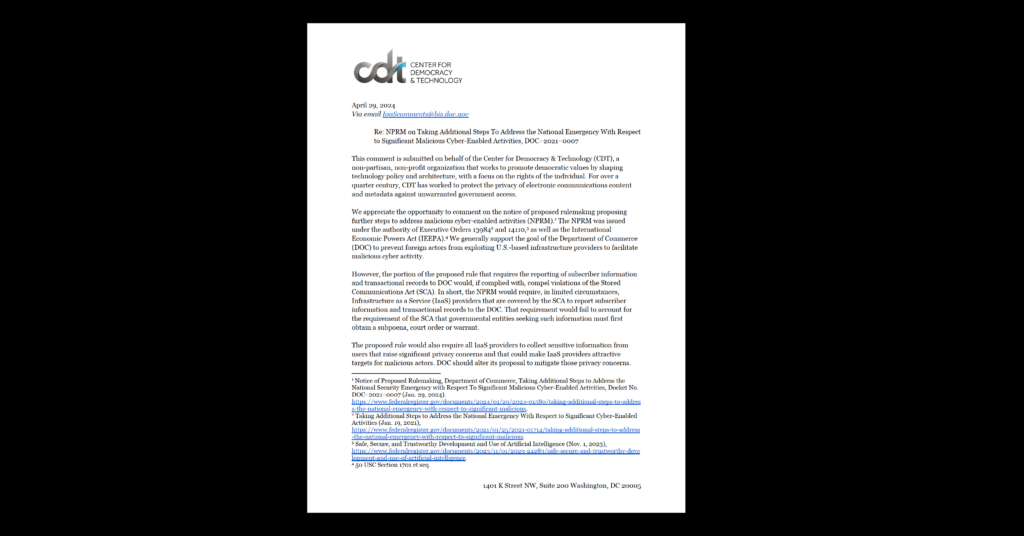Government Surveillance, Privacy & Data
MLAT Reform Proposal: Eliminating U.S. Probable Cause and Judicial Review
Greg Nojeim, Senior Counsel and Director of our Freedom, Security and Technology Project, guest wrote for Lawfare, a site published by the Lawfare Institute in cooperation with the Brookings Institute. It’s solely dedicated to “that nebulous zone in which actions taken or contemplated to protect the nation interact with the nation’s laws and legal institutions.” We’ve published the first few paragraphs here – click below for the full text.
MLAT Reform Proposal: Eliminating U.S. Probable Cause and Judicial Review
Jennifer Daskal and Andrew Woods recently put forth a reform proposal for law enforcement demands for communications content across national borders. Their proposal is the product of extensive consultation and it merits extensive consideration. It is similar, in some ways, to the “straw man” MLAT reform proposal that we at the Center for Democracy and Technology (CDT) released some months ago. The purpose of this and subsequent posts is to examine a few aspects of the Daskal-Woods proposal to promote understanding of its implications, drawbacks and benefits. This post will consider how the proposal relates to the U.S. probable cause requirement for cross-border requests for content.
A key feature of the Daskal-Woods proposal is to eliminate, in some circumstances, the requirement that a U.S. court find probable cause prior to the disclosure of stored communications content by U.S. communications service providers. Under this proposal, the probable cause finding would not be required where the requesting entity is a foreign government that meets certain human rights standards, makes a request for content that meets the same standards, and requests the content of a “target” who is not a U.S. citizen or resident. The CDT proposal likewise eliminates the probable cause findings requirement, but in a more restrictive class of cases: where the perpetrator, victim, and location of the crime are all in the country that was making the demand for stored content. We worry that the elimination of probable cause for a broader class of content demands by foreign governments may be a step too far, absent additional civil liberties and human rights protections that should be built in.
The Daskal-Woods proposal replaces the requirement that a U.S. judge find probable cause with a lower standard of proof, a standard similar to that governing orders issued under 18 U.S.C. 2703(d): “a strong factual basis to believe that a crime has been, is being or will be committed and that the information [sought] is relevant and material to the investigation of the crime.” The requesting country’s law would have require a level of proof that meets or exceeds this standard. Under the proposal, a judicial or non-judicial entity – presumably an entity in the requesting country – would determine whether the request meets the standard, and the entity must be independent from the prosecutorial function.


